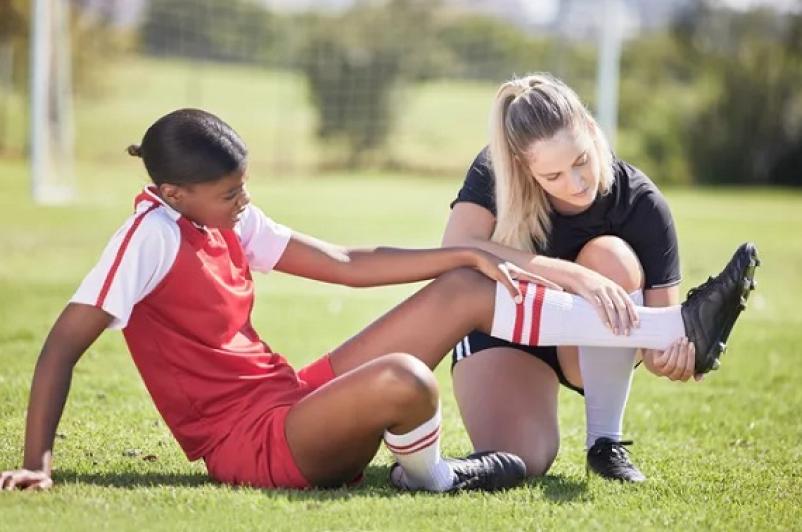
In the world of sports medicine, some may think it is only about treating athletic injuries. However, it takes a comprehensive approach from a team of professionals to offer preventative treatment and rehabilitation plans to get athletes performing at their highest level before, during and after the game.
For the 2024-2025 school year, student-athletes at nine local high schools and Binghamton University will benefit from state-of-the-art care from UHS Sports Medicine providers, from practices and games right through to the off-season. The school-based programs offer a full range of services from physician support, physical therapy, athletic training, strength and conditioning coaching, and even help with dietician needs and behavioral health.
“Our staff provides physicals, covers games, and provides athletic training and strength conditioning for these athletes, to enhance sports performance and prevent injuries,” Explains UHS Sports Medicine Field Manager Andrew Long, MS, SCCC, CSCS, RSCC*D.
With this comprehensive program, athletes, school coaching staff, administrators, and UHS Sports Medicine staff work in collaboration to build a relationship aimed at sports performance for all athletes. When bringing everyone together, it’s about building a culture in support of athletes and the broader community.
“Culture building means we get athletes and the community on the same page to support each other,” Long said. “We facilitate programs in which all athletes are getting the same services and working just as hard, no matter their sport.”
UHS began offering school-based sports medicine partnerships more than 15 years ago, with the service gaining traction in the last eight to 10 years. “There was a realization on the school side and the training side that we had an opportunity to help student-athletes build good foundations and habits for life,” Long said.
The program offers two UHS Sports Medicine staff members for each school. The athletic trainer provides medical coverage at practices, games and clinics where they manage injuries and return-to-play for the school’s athletes; the strength and conditioning coach manages the weight room, coaches communication and focuses on injury prevention with athletes. The school-based program also supports participating schools year-round, both in-season and off-season. In-season athletes work to maintain strength and power, while off-season athletes build power and speed. Throughout the year, athletes take part in strength training with the conditioning coaching staff.
The approach is carefully crafted by the individual sport – UHS Sports Medicine staff members analyze the demands of each sport and associated injury rates, then develop programs to make the athletes more resilient. Said Long, “If ACL tears are common in a specific sport, we’re working on balance, sprints, plyometrics, unilateral and bilateral leg strengthening, and other ways to help reduce those injuries.”
If a student-athlete is injured, the certified athletic trainer on site will work with the necessary providers on the UHS Sports Medicine team at large to determine what support is needed. Depending on the injury, services can be done right at the school. More in-depth rehabilitation services can be performed at UHS Sports Medicine facilities and the UHS Orthopedic Center.
“We’re all looking at the athlete’s best interest and what’s most convenient for them and their families. Sometimes it’s easier for the student to do rehab at school,” Long said. UHS provides physical therapy locations in Chenango Bridge, Endicott, Greene, Owego and Vestal, and sports medicine services in Apalachin and Vestal for families who choose community-based services.
Services provided to partner schools are extended to non-team athletes as well: “Students, who we call open athletes, can come work with our strength coaches. Everyone benefits – young people are developing and learning good techniques at an early age that will benefit them for the rest of their lives.”
“This time spent with student-athletes isn’t about lifting heavy weights and bulking up – it’s about developing good techniques and learning quality movement for each sport,” Long said. “We truly care about our athletes and communities. We’re here to keep everyone playing safely and the best they can.”
For more information about school-based sports medicine partnerships with UHS, visit www.nyuhs.org.


